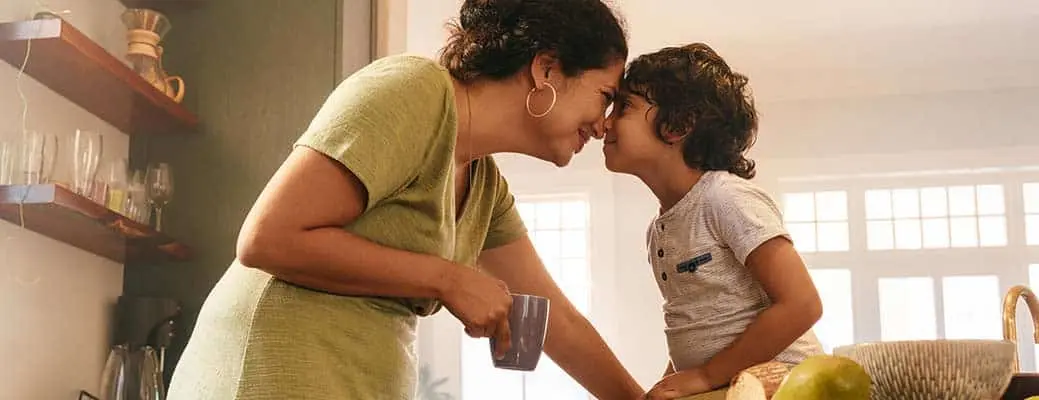You’ve covered outlets, locked cabinets and anchored heavy furniture. Your home is a safe place — but common childhood accidents still happen. In fact, a child is treated for an unintended injury at the emergency department every four seconds.1 The most dangerous things for children are car crashes, suffocation, drowning, poisoning, fires and falls.
Keep your kids safe with these childhood injury prevention tips and take steps to lessen the risk of these four types of home accidents.
1. Drowning
Drowning is the most common cause of unintentional injury-death in children ages one to four.2 While we most commonly associate pools with these tragedies, it’s important to keep in mind that kids can drown in mere inches of water.
Pool Safety:
- Install a fence around your backyard pool and always ensure the gate is closed.
- When in the pool, use a U.S. Coast Guard-approved floatation device — not water wings or inflatable toys, which can deflate.
- Enroll yourself and your child in water survival and swim lessons.
- Keep your child within an arm’s length during swimming.
- Ensure all older children and adults know CPR.
Household Safety:
- Keep toilets covered and bathroom doors closed.
- Never leave your child alone during bath time.
- Keep any water collection devices securely closed.
2. Fires
Kids are curious and don’t always understand when their actions are dangerous. There are a variety of ways to help keep your child safe and prevent burns:
- Create a fire escape plan and share it with your children.
- Install smoke alarms on each level of your home and near sleeping areas.
- Never leave the kitchen unattended while cooking.
- Use stove burners your child can’t reach and rotate pot handles toward the wall.
- Avoid carrying hot foods and liquids while holding your child.
- Store lighters and matches in a locked or out-of-sight location.
- Keep items like candles, hair straighteners and irons away from counter edges and out of reach.
- Regularly clean your fireplace.
- Teach children fire safety strategies, like stop, drop and roll.
3. Falls
Your home is full of furniture your child could fall from, especially if you have an adventurous little one. You can help avoid fall injuries by removing external hazards, but there are always risks. Unfortunately, nearly 7% of children had symptoms of a concussion or brain injury in 2020.
- Keep furniture or anything stackable away from windows.
- Keep windows closed when not in use.
- Use baby gates around stairs, decks, balconies and porches. For gates at the top of a flight of stairs, be sure to screw it into the wall so a child can’t lean on it and tip the gate (and themselves) down the stairs.
- Secure furniture and TVs to walls to avoid tipping.
- Encourage wearing a helmet from an early age while using a scooter, bike, skateboard, etc.
4. Suffocation and Choking
From 2010 to 2019, suffocation deaths among infants increased 20%.3 Help keep your child safe by being vigilant and following safe sleep guidelines.
- Ensure your child’s bedding fits tightly.
- Place your infant on their back to sleep.
- Keep food pieces small and avoid circular pieces that can get caught in small throats.
- Encourage your child to chew while sitting down and avoid distractions (like the TV) while eating.
- Know common choking hazards for young kids.
- Keep small objects, including older kids’ toys, out of reach.
Protect Your Peace of Mind
We can help you determine the right coverage for your needs so you’re protected against all of life’s accidents. Contact your Farm Bureau agent today.

